Continuing the 10th Session, this morning, November 7, after the plenary session, the National Assembly discussed in groups: the draft Law on Planning (amended); the draft Law on amending and supplementing a number of articles of the Law on Urban and Rural Planning and the adjustment of the National Master Plan for the 2021-2030 period.
It has been clarified that the National Master Plan is the backbone, leading regional and provincial planning.
Discussing the adjustment of the National Master Plan for the 2021 - 2030 period, delegates at Group 11 (including the National Assembly Delegation of Can Tho City and Dien Bien Province) basically agreed on the need to establish adjustments to the National Master Plan in order to promptly institutionalize the Party's guidelines and policies, the State's policies, especially the "four pillars" resolutions recently issued.
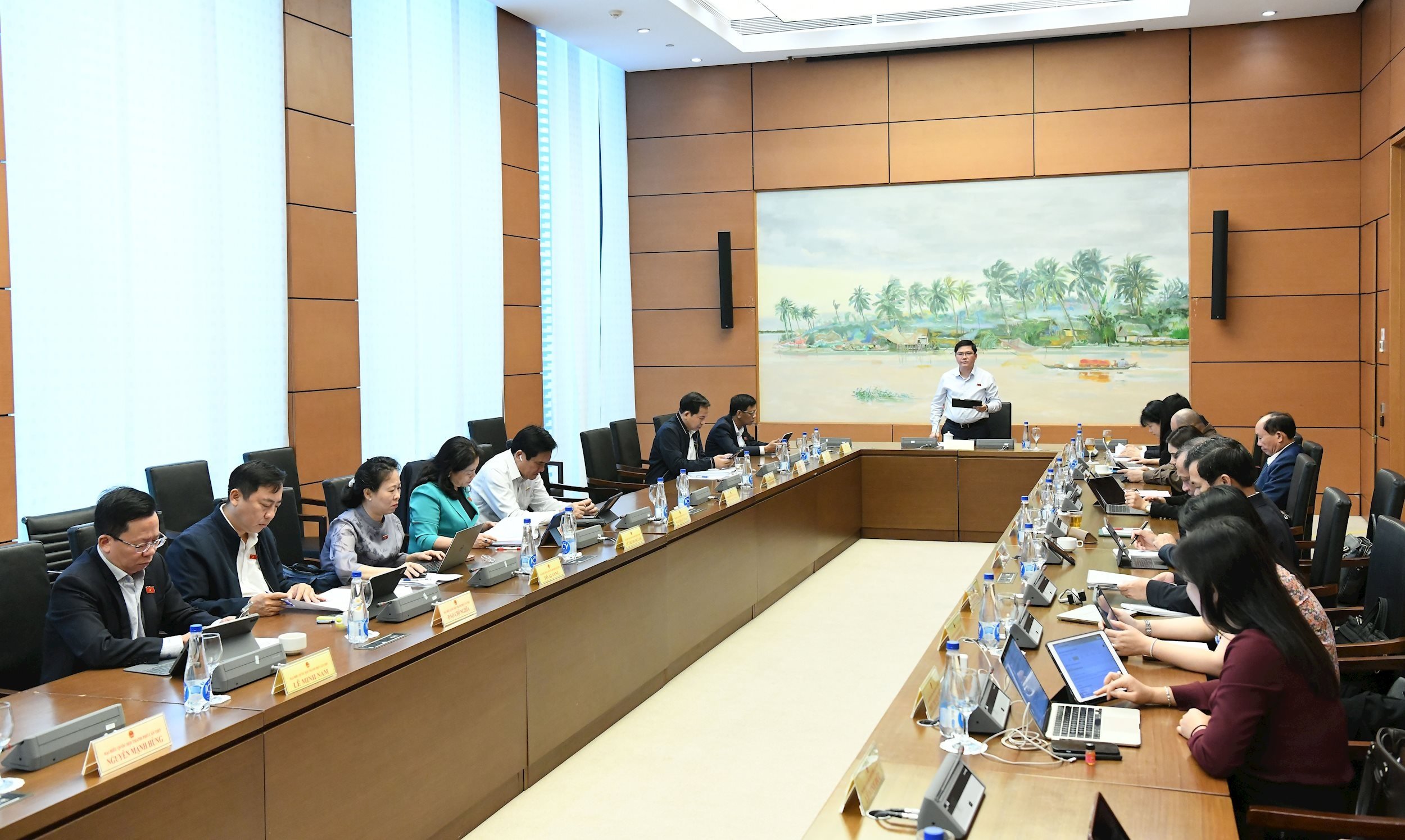
The adjustment is also consistent with the provisions of the current Planning Law, contributing to perfecting the regulations on national master planning work to suit the current 2-level local government model and the requirements of national development in the new era as stated in Submission No. 875/TTr-CP dated October 8, 2025 of the Government .
Assessing that the dossier for adjusting the National Master Plan has been prepared relatively fully with reports, diagrams, and appendices attached, however, delegates also suggested continuing to review, supplement, and update information to clarify the basis for adjusting the plan and ensure that the revised and supplemented regulations will properly, fully, and promptly institutionalize the Party's guidelines and policies on planning work, meeting the country's development requirements in the new situation.
National Assembly Deputy Dao Chi Nghia (Can Tho) highly appreciated the fact that the draft Resolution of the National Assembly on adjusting the national master plan has clarified the role of the national master plan as the backbone, leading regional and provincial planning, overcoming the overlapping situation that localities are reflecting, including very breakthrough orientations on developing strategic infrastructure of high-speed railways, inter-regional highways, logistics activities, digital transformation, marine spatial planning, renewable energy and key national portfolios.
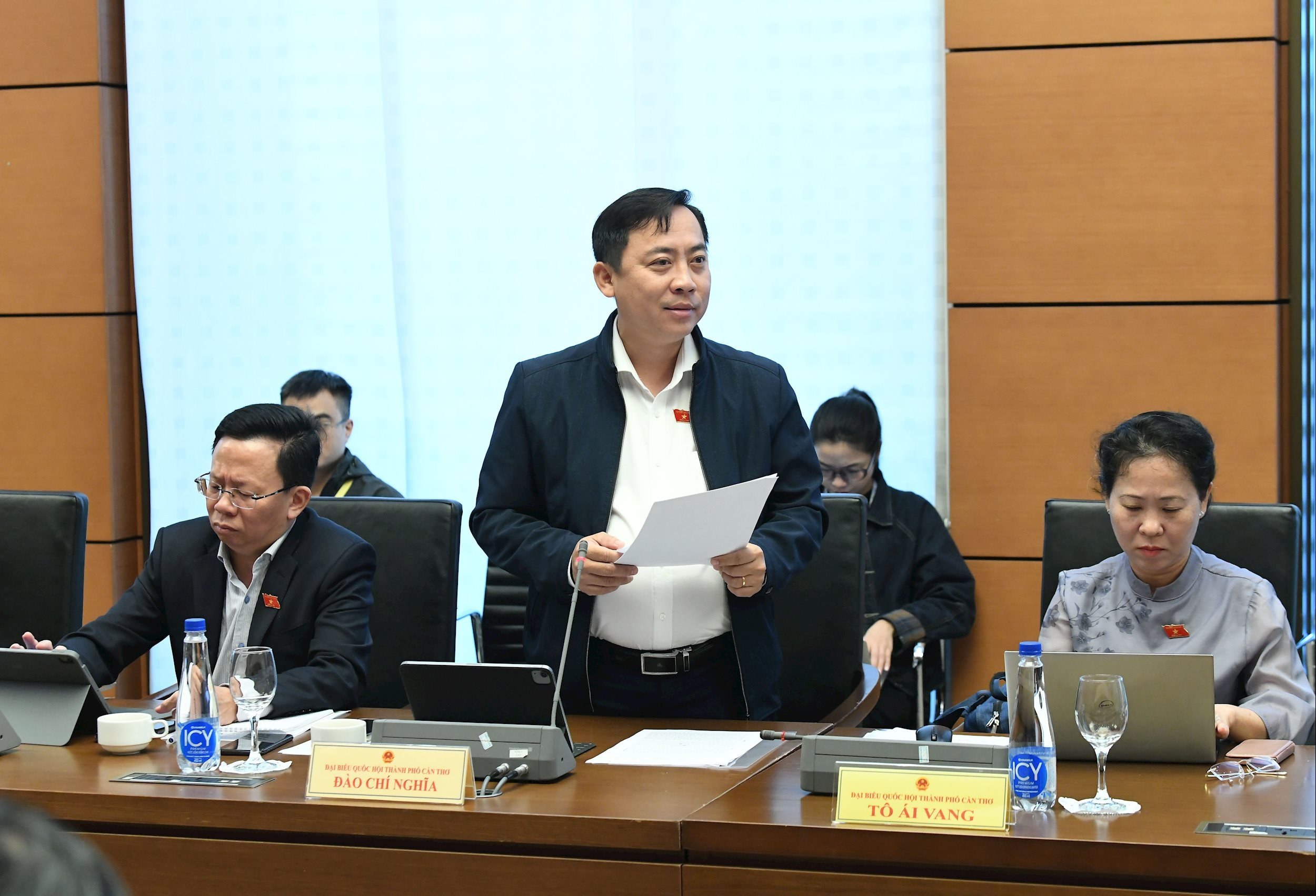
To continue perfecting the draft Resolution, National Assembly Deputy Nguyen Tuan Anh (Can Tho) requested the agency that prepares and adjusts the national master plan to continue to research and carefully review the adjusted contents to ensure the concretization of the Party's guidelines and policies for effective and feasible implementation in practice; review related plans (energy plans, national sea space plans, etc.) as well as related laws, draft laws submitted to the National Assembly for consideration and approval at the 10th Session, especially the draft Law on Planning (amended) to ensure the consistency and synchronization of planning regulations in the legal system, effective and feasible implementation in practice.
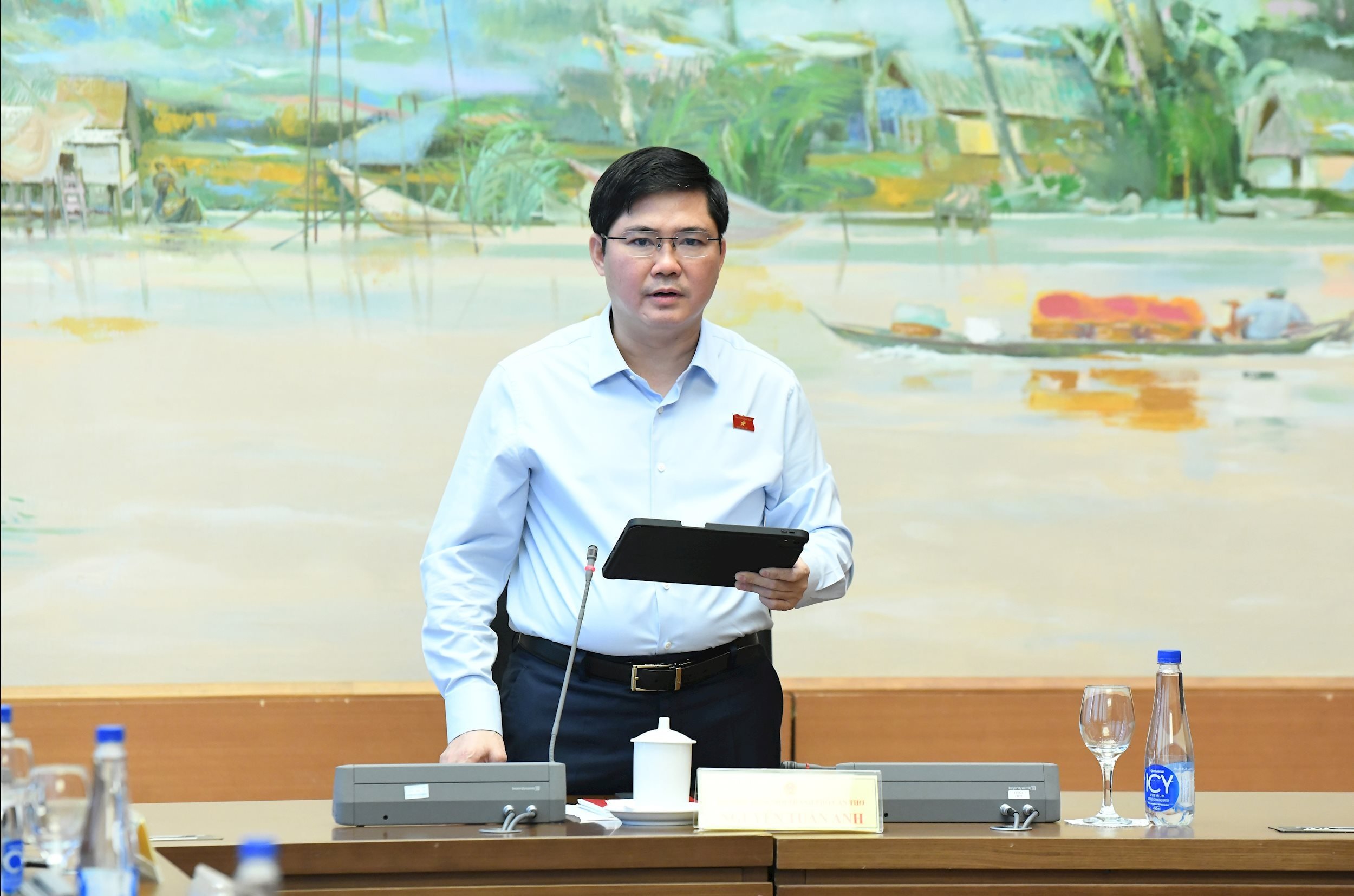
Delegate Nguyen Tuan Anh also expressed his agreement with the addition of content in the development orientation and spatial distribution of important economic sectors, social infrastructure sectors, technical infrastructure sectors, focusing on the application, development of science, technology, innovation and digital transformation in the sectors; said that this is a strategic and timely step, demonstrating high vision and political determination in grasping the trends of the Fourth Industrial Revolution; institutionalizing the Party's guidelines and policies, especially Resolution No. 57-NQ/TW dated December 22, 2024 of the Politburo on breakthroughs in science, technology development, innovation and national digital transformation.
In addition, delegate Nguyen Tuan Anh suggested continuing to research, thoroughly review, update information and ensure full institutionalization of the Party's guidelines and policies on the content of science and technology development, innovation and digital transformation in socio-economic regions, especially the application of new technologies such as artificial intelligence; thoroughly review the contents of adjusting the development orientation and spatial distribution of important economic sectors, social infrastructure sectors, and technical infrastructure sectors to ensure focus on developing important and key areas necessary to help the country develop breakthroughs in the new period.
It is necessary to "limit" the time for the Government to issue a plan to implement the Resolution.
Delegate Dao Chi Nghia proposed to study and add a new clause regulating the implementation organization in the draft Resolution of the National Assembly in the direction of clearly stipulating the transitional provisions. Specifically, the delegate proposed to add a provision on the time limit within 6 months from the Resolution taking effect, the Government shall issue a plan to implement the Resolution.
"This addition will help the spirit of the Resolution to be implemented immediately and without delay. We really hope that after the Resolution is implemented, the Government will immediately implement the action plan," the delegate emphasized.
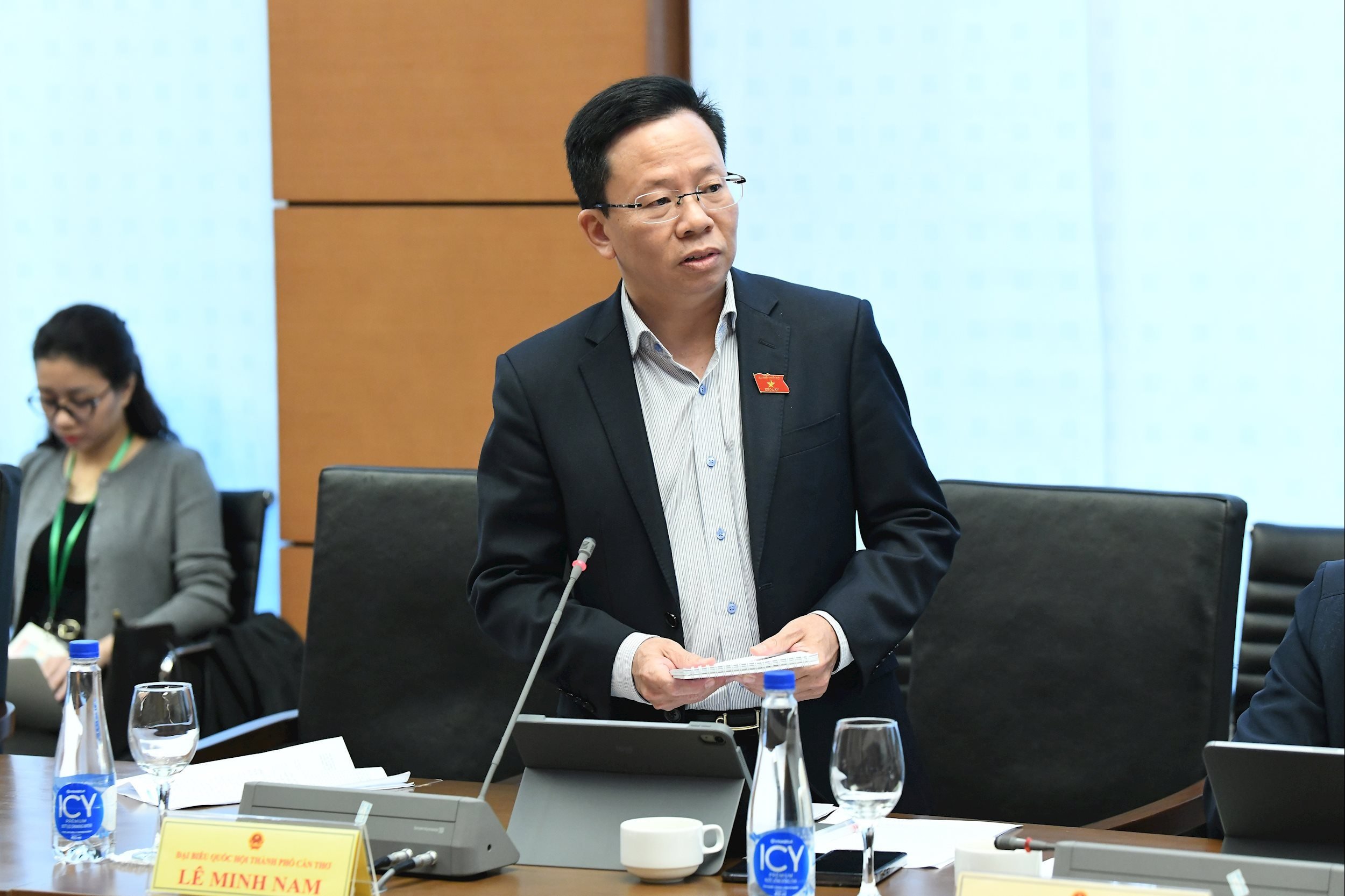
National Assembly Deputy Le Minh Nam (Can Tho) pointed out that although the current orientation still maintains 6 regions, the regional structure and space have changed a lot after merging provincial-level administrative units. This, according to the delegate, creates both new advantages, new strengths and new difficulties and challenges.
Therefore, it is necessary to carefully assess the issue of regional connectivity in the context of the reorganization of provinces and cities. The nature of mutual support, promotion or elimination of mutual advantages after the reorganization needs to be carefully assessed and analyzed to orient the development of economic and social space more closely to reality. It is necessary to pay attention to determining the specific conditions and circumstances of each region, including strengths, difficulties, limitations and obstacles so that when setting appropriate goals, it will be feasible and bring higher efficiency.
Regarding the list of important national projects and investment priorities, through the opinions of voters and the proposal of the People's Committee of Can Tho city, delegate Dao Chi Nghia proposed to add Tran De port and the expansion project of Can Tho international airport. According to the delegate, these are projects that will greatly remove the bottlenecks in traffic infrastructure of Can Tho city and the whole Mekong Delta. Agreeing with these proposals, delegate Le Minh Nam said that these are strategic infrastructure projects that need to be added, thereby also contributing to the successful implementation of the National Master Plan.
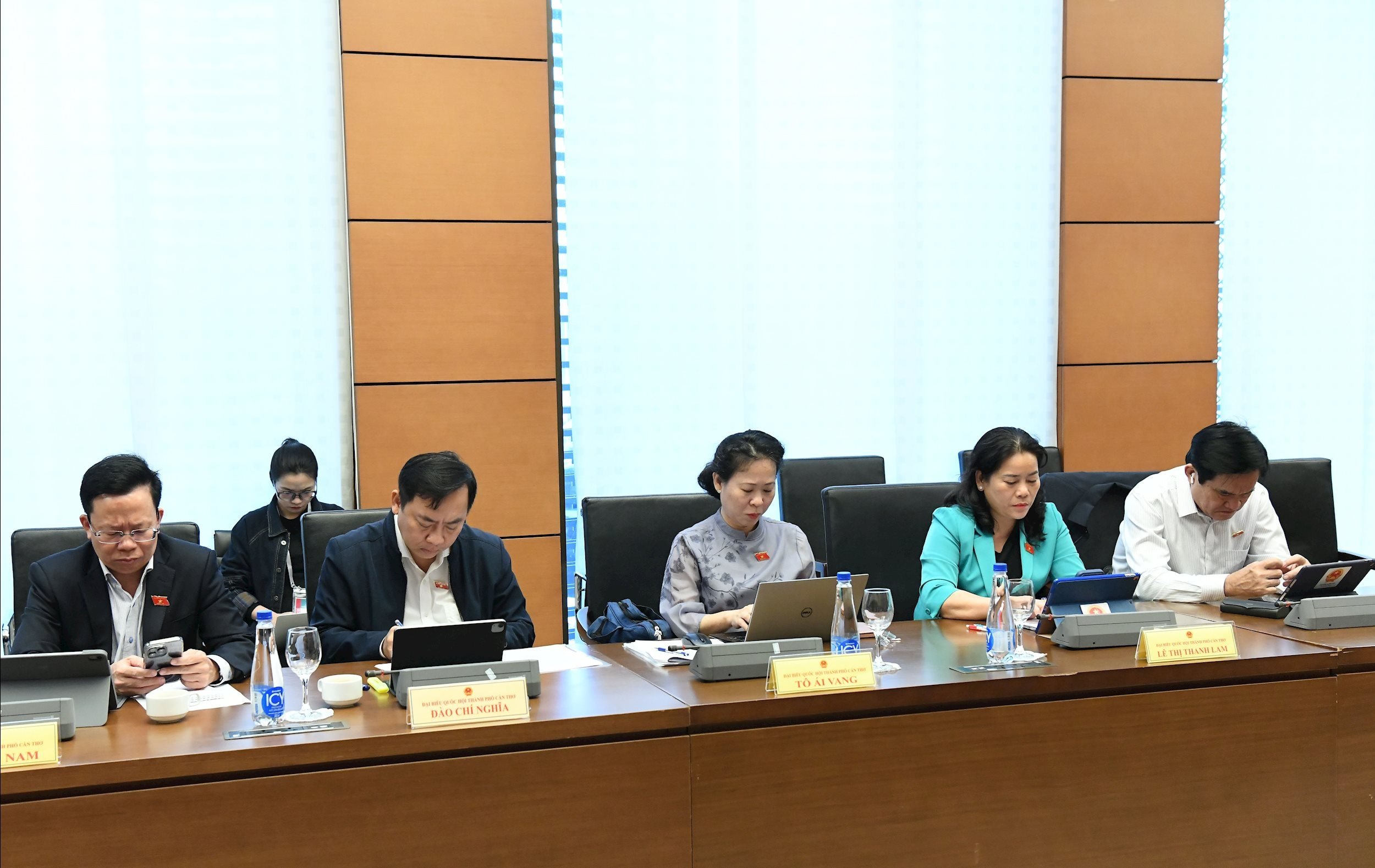
Delegate Nguyen Tuan Anh also proposed to study and supplement the content on the development of Can Tho city to make it more complete and comprehensive, especially updating the content in Resolution No. 59 of the Politburo which identified: developing Can Tho city as the growth pole of the country, playing the role of a core urban area, a driving force for development, spreading and leading the entire Mekong Delta region.
In addition, regarding renewable energy projects, delegates cited Appendix 2 with content on developing renewable energy centers, wind energy, solar energy, biomass in some advantageous locations. However, "this content is still very general, not clearly defining which advantageous locations are". Therefore, delegate Dao Chi Nghia suggested researching and clearly defining advantageous locations related to renewable energy.
Specifically, delegates proposed prioritizing the development of renewable energy, wind power, and offshore wind power in the South Central Coast and Mekong Delta regions to promote the great strengths of these regions.
The central government is responsible for investing in inter-regional projects.
Delegate Dao Chi Nghia also proposed to amend Article 5 on regional linkage because this content is currently general in nature and does not meet the specific requirements of the Mekong Delta region.
"The regulations on strengthening regional connectivity and promoting the role of regional coordination agencies are not yet linked to specific authority and will make it difficult for the Mekong Delta Coordination Council to implement in the context of irrigation infrastructure, flood control, freshwater storage and logistics activities requiring very strong regional connectivity. The draft Resolution does not have a separate financial mechanism for regional connectivity activities. Meanwhile, the Mekong Delta cannot form strategic projects such as the Ho Chi Minh City - Can Tho railway or large irrigation works without a regional connectivity fund."
Emphasizing this, delegate Dao Chi Nghia proposed to study the authorization for the Regional Coordination Council to establish a regional linkage fund for the Mekong Delta and clarify the mechanism for prioritizing regional planning when there are conflicts among localities in the region.
Discussing further on this issue, Minister of Finance Nguyen Van Thang, National Assembly Delegate of Dien Bien province, said that the Regional Coordination Council is not a government level, so budget allocation is extremely difficult.
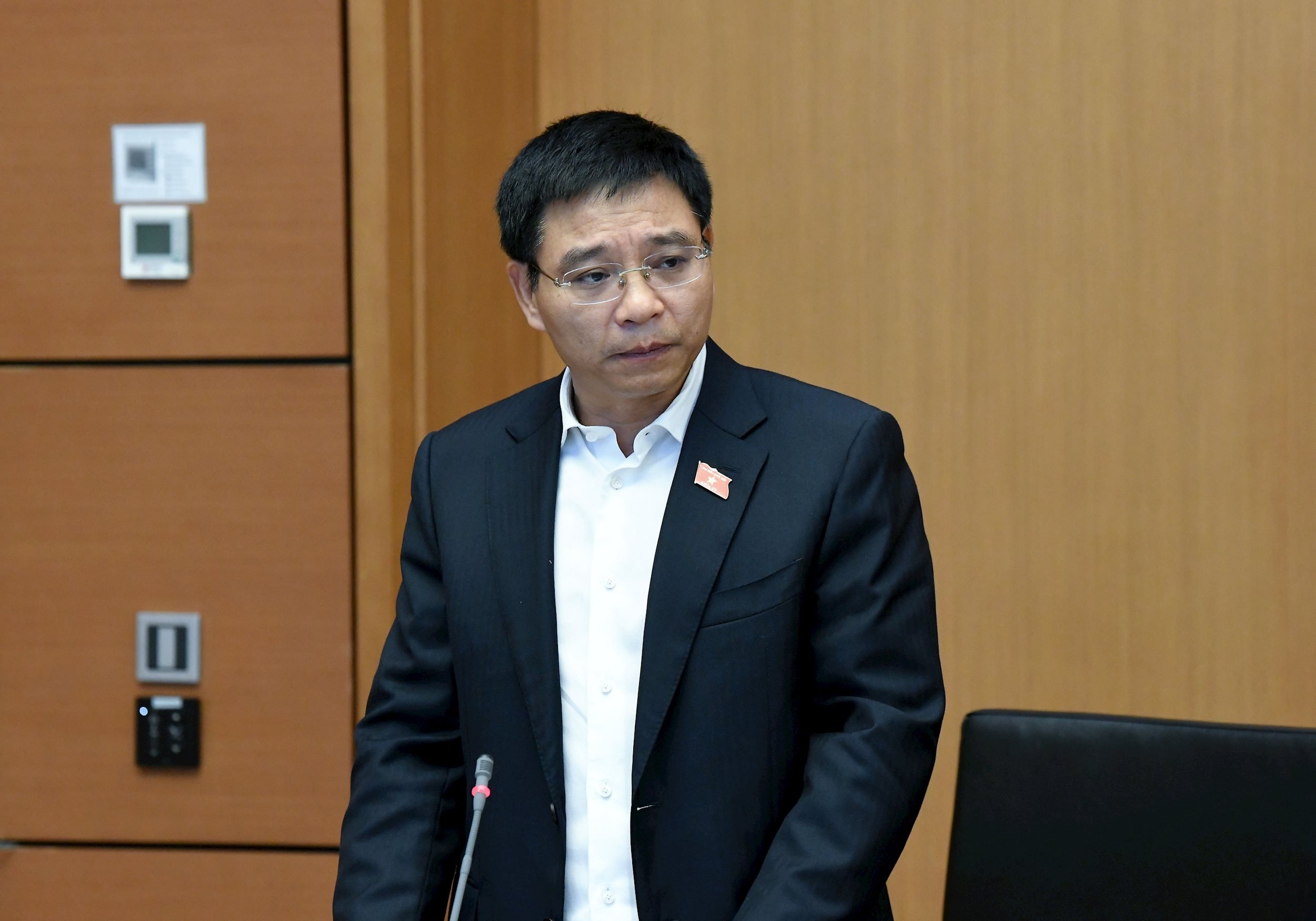
"Regarding regional issues, it is necessary to increase interaction between localities in the region. In addition, the regional planning also clearly defines: the biggest issue of the region is the issue related to connecting infrastructure and the Central Government is responsible for investing in the system of inter-regional works, so the Central Government has also taken care of the funding issue," Minister Nguyen Van Thang emphasized.
The state must be highly centralized, be the center of coordination, orientation, supervision and regulation of resources.
Concerned about the issue of organizing the implementation of the National Master Plan, delegate Le Minh Nam suggested that it is necessary to evaluate and predict the ability to realize the plan and the feasibility of the plans.
"This is the prerequisite and important condition. We can set a very positive goal, but in the process of organizing and implementing it effectively, we also need to calculate. In particular, the conditions and capacity of resources, human resources, natural conditions... must be considered comprehensively to make appropriate adjustments."
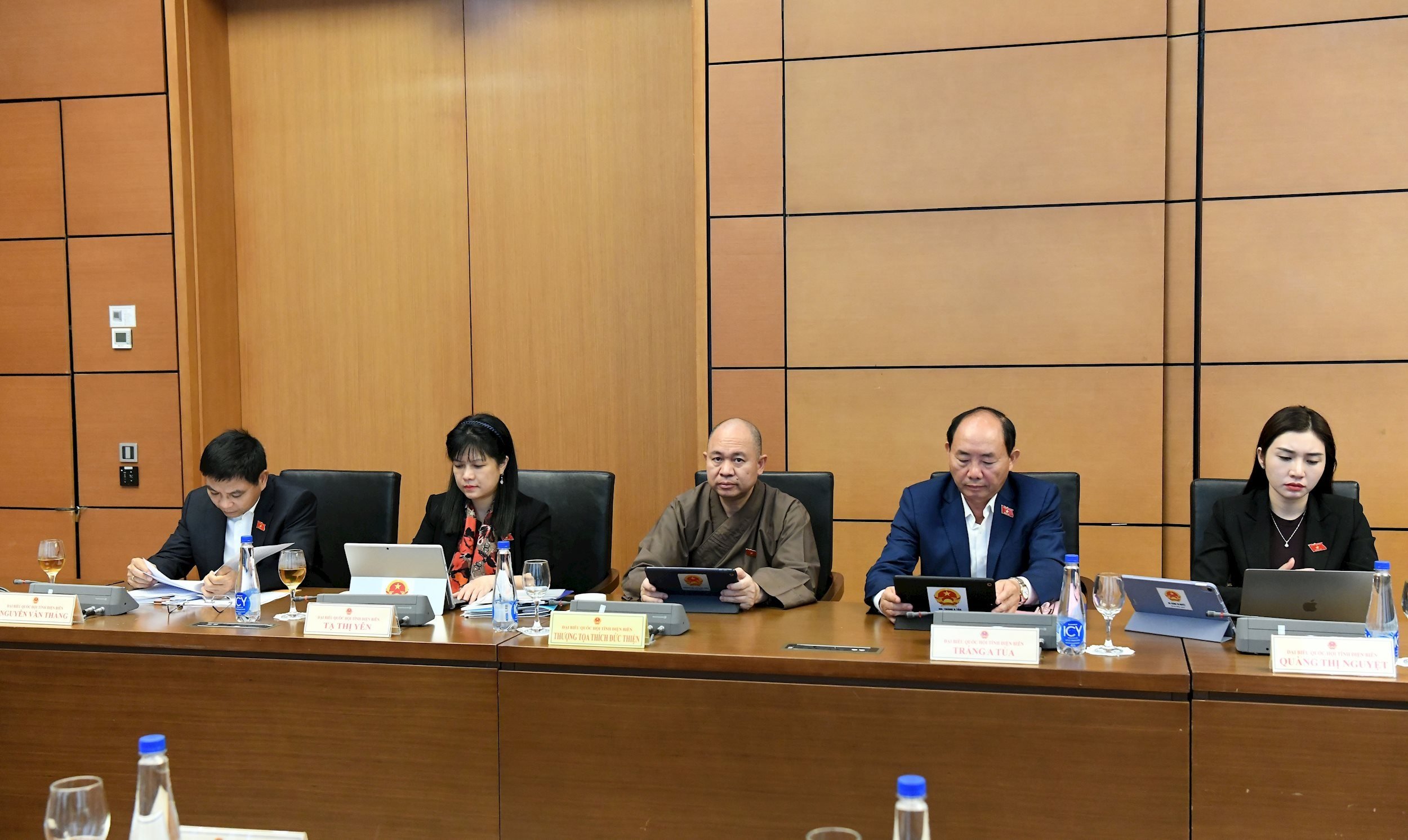
The draft Resolution has provided many solutions and resources to implement the "very complete and comprehensive" Planning, but delegate Le Minh Nam also suggested paying more attention to the issue of resource allocation.
"It is very important to pay attention to the issue of resource allocation for implementation. The allocation must be truly optimal, effective, efficient, and have a roadmap, not spread out."
According to the delegate, in the immediate future, it is necessary to prioritize which areas to focus on, in the spirit that during this period the State must also be highly centralized, be the center of coordination, orientation, supervision as well as resource regulation. We select, focus, and prioritize the development of industries that have spillover effects or competitive advantages to mobilize resources optimally.
Source: https://daibieunhandan.vn/dieu-kien-tien-quyet-la-danh-gia-du-kien-duoc-kha-nang-hien-thuc-hoa-quy-hoach-10394799.html




![[Photo] Da Nang: Hundreds of people join hands to clean up a vital tourist route after storm No. 13](https://vphoto.vietnam.vn/thumb/1200x675/vietnam/resource/IMAGE/2025/11/07/1762491638903_image-3-1353-jpg.webp)



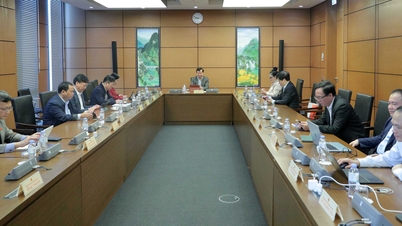

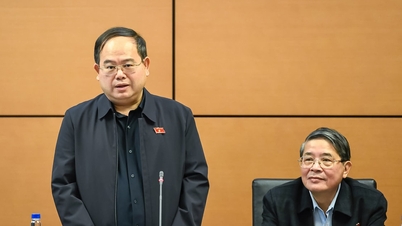
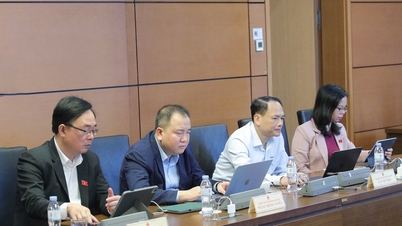
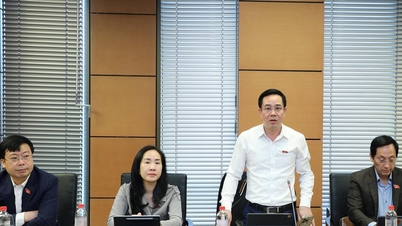


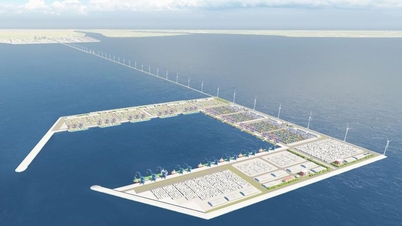




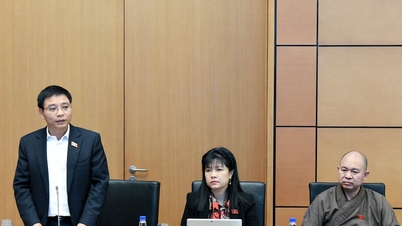


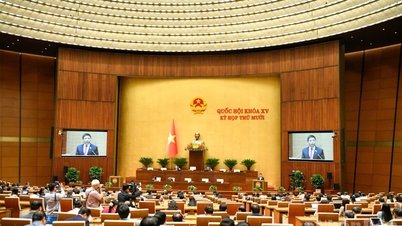




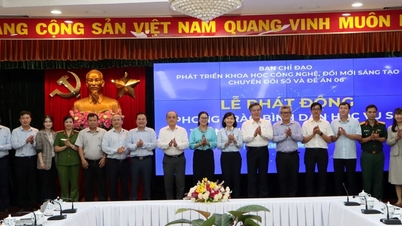

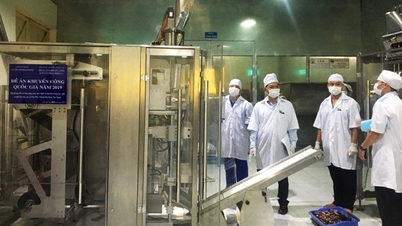

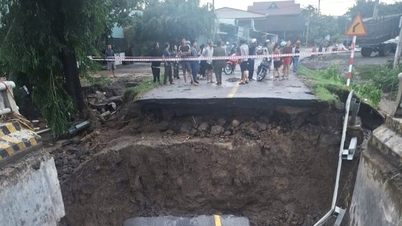
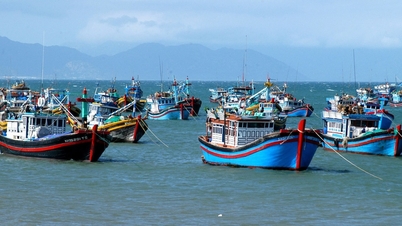
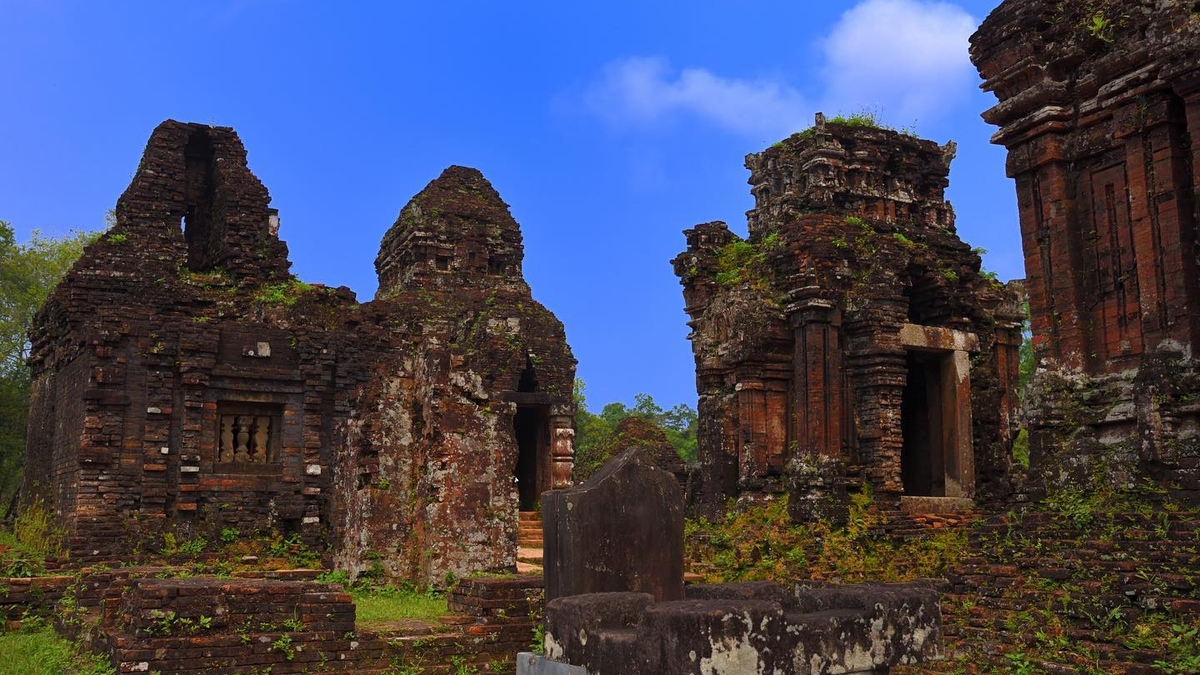









































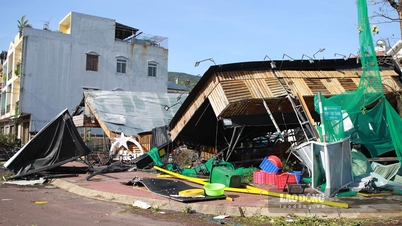




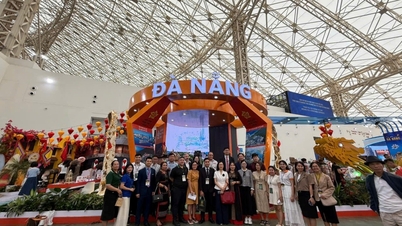

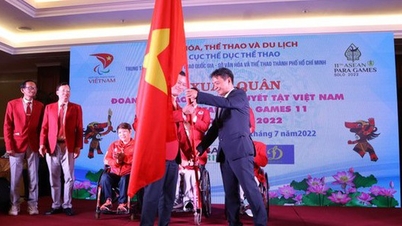
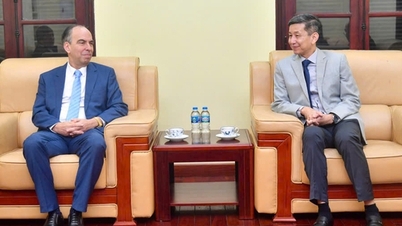
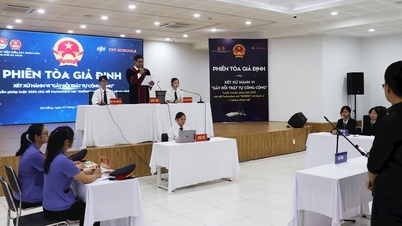



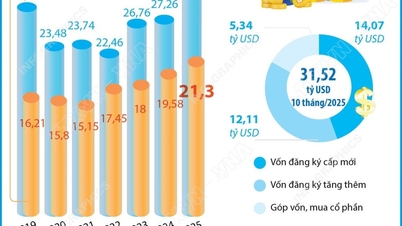



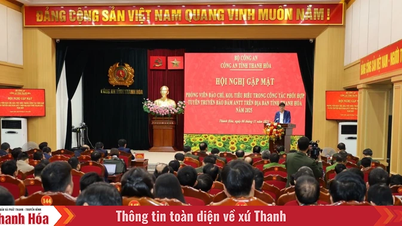

















Comment (0)